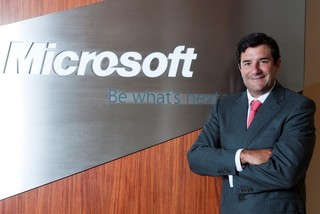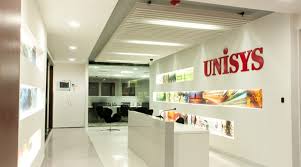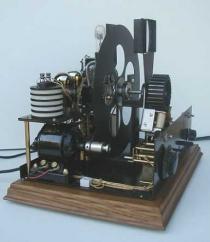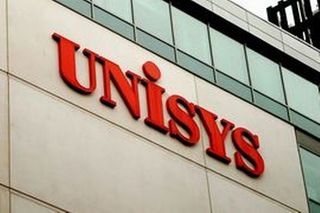The digital revolution for the movie industry will begin at one of Hollywood_s classic movie palaces, the Egyptian Theater.
Published:
13 March 2000 y., Monday
Engineers, equipment makers, theater owners and moviegoers will be pulled together to test prototypes of digital projection systems that are expected to become commonplace in movie houses in five years or so.
The creation of the Digital Cinema Lab will be run by USC_s Entertainment Technology Center.
The digital systems promise sharper pictures and richer sound - the movie theater equivalent of DVDs - along with the potential for new kinds of theme-park-style special effects.
By providing a neutral forum for the motion picture industry to evaluate competing technologies, Digital Cinema Lab hopes to speed up the process of setting standards for a new generation of equipment that will project onto theater screens images from computer servers that store movies in digital form.
If things go as planned, in a few years when a studio releases a movie, it won_t distribute reels of film. Instead, movies will be delivered over computer networks directly onto servers in each theater. When that happens, studios expect that they will save $500 million a year because they won'_ have to produce or distribute thousands of movie prints.
Industry players began taking it seriously in late 1998 after Texas Instruments showed off prototypes of projectors using its newest digital light processing technology. The Texas Instruments projectors create a higher-resolution picture by enhancing the sharpness of individual pixels instead of trying to cram more pixels onto a screen.
Those talks led to the idea of creating the Digital Cinema Lab. Another important goal is to develop standards ensuring that digital projection systems made by competing manufacturers will be compatible -- unlike the current mix of movie theater digital sound systems. The cost of upgrading theaters is estimated at about $10 billion worldwide, including $3 billion in the United States. Each theater would need to install a computer server to the tune of about $100,000. The lab_s current budget is $1 million a year, though it expects to get the additional funding it needs from studio sponsors and from in-kind donations of equipment from manufacturers.
Šaltinis:
Los Angeles Times
Copying, publishing, announcing any information from the News.lt portal without written permission of News.lt editorial office is prohibited.
The most popular articles
Software company announced new structure_ of it_s business.
more »
 The electronic vignette system in the Slovak Republic has become unique in the world thanks to the speed of implementation and increase in the revenues from the collection carried out by SkyToll a.s. on behalf of the Slovak government.
more »
The electronic vignette system in the Slovak Republic has become unique in the world thanks to the speed of implementation and increase in the revenues from the collection carried out by SkyToll a.s. on behalf of the Slovak government.
more »
 Unisys has promoted Perla Do Amral to a key leadership role, becoming director of service desk operations for the U.S.-based IT company’s managed services centers in Latin America.
more »
Unisys has promoted Perla Do Amral to a key leadership role, becoming director of service desk operations for the U.S.-based IT company’s managed services centers in Latin America.
more »
 Cesar Cernuda is a Microsoft veteran of 19 years, and has served in several senior leadership positions for Microsoft Business Solutions, including overseeing Microsoft’s ERP and CRM business worldwide.
more »
Cesar Cernuda is a Microsoft veteran of 19 years, and has served in several senior leadership positions for Microsoft Business Solutions, including overseeing Microsoft’s ERP and CRM business worldwide.
more »
 Unisys received a contract from NASA Langley Research Center (LaRC) to continue to deliver advanced hardware, software, and systems integration for flight simulation projects at the agency.
more »
Unisys received a contract from NASA Langley Research Center (LaRC) to continue to deliver advanced hardware, software, and systems integration for flight simulation projects at the agency.
more »
 Unisys Corporation reported third quarter 2015 results.
more »
Unisys Corporation reported third quarter 2015 results.
more »
 On the 10th–15th, this September, RAI Exhibition and Congress Centre in Amsterdam will hold the 48th international exhibition-conference dedicated to electronic media and entertainment industry IBC 2015.
more »
On the 10th–15th, this September, RAI Exhibition and Congress Centre in Amsterdam will hold the 48th international exhibition-conference dedicated to electronic media and entertainment industry IBC 2015.
more »
 Unisys Corporation announced the completion of the initial phase of testing of a facial recognition system at Dulles International Airport, Virginia, to help Customs and Border Protection (CBP) to identify imposters attempting to enter the United States using passports that are fraudulent or do not belong to them.
more »
Unisys Corporation announced the completion of the initial phase of testing of a facial recognition system at Dulles International Airport, Virginia, to help Customs and Border Protection (CBP) to identify imposters attempting to enter the United States using passports that are fraudulent or do not belong to them.
more »
 Television was invented back in 1884, when German Paul Gottlieb Nipkow came up with the idea to scan images using a rotating metal disc with a spiral pattern of holes in it. When the disc was spinning, each hole would scan one brightly lit line of the image.
more »
Television was invented back in 1884, when German Paul Gottlieb Nipkow came up with the idea to scan images using a rotating metal disc with a spiral pattern of holes in it. When the disc was spinning, each hole would scan one brightly lit line of the image.
more »
 SuperCom, a leading provider of secure solutions for e-Government, Public Safety, HealthCare, and Finance sectors, announced its results for the quarter ended March 31, 2015.
more »
SuperCom, a leading provider of secure solutions for e-Government, Public Safety, HealthCare, and Finance sectors, announced its results for the quarter ended March 31, 2015.
more »
 Unisys Corporation today announced that Tom Patterson has joined the company as vice president for global security solutions, responsible for leading Unisys' security solutions business worldwide.
more »
Unisys Corporation today announced that Tom Patterson has joined the company as vice president for global security solutions, responsible for leading Unisys' security solutions business worldwide.
more »